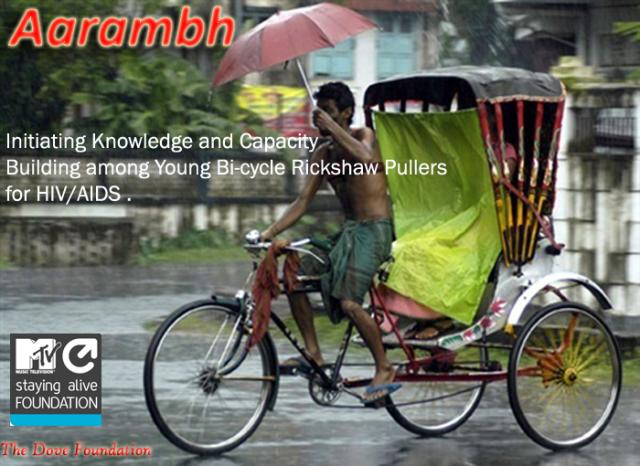Preventing HIV/AIDS among Rickshaw Pullers in India through Knowledge Management
Describe The Approaches Utilized To Measure / Assess This KM Initiative:
Our project started with a needs assessment study through focus groups and individual interviews to understand where the gaps in HIV/AIDS knowledge lie within the community. To build and disseminate knowledge about HIV/AIDS & Reproductive Health we are using cascading flow of knowledge through the Community Peer Educators and Peer Educator. The project has created 31 Community Peer Educator and 310 Peer Educators. Through the use of peer educator daily diaries and a cross check through other activities we are assessing the . Every two month a workshop is being held with the RPs in each of the districts to asses the outcome of activities . In workshop we are using Inter Personal Communication tools, mid-media as an assessment tool of checking the knowledge developed of the community. Through use of magnet theaters we are building and checking the knowledge of community simultaneously which is also increasing community participation.
What Do You Think Are The Main Unanswered Questions Or Challenges Related To This Field Of Work?:
It is difficult to approach the community which is socially excluded and illiterate. Working with such community on issue of HIV/AIDS which carries lot of social stigma in India is a big challenge. We need to develop a model for establishing fast rapport with such community.
What Was The Purpose Or Motivation For Assessing This KM Initiative?:
It is highly important for us to assess this initiative as this is the first of its kind knowledge building and management project among the rickshaw pullers in India. Through continuous assessment activities we are learning & documenting the best practices and lessons from the project in order to develop a replicable model for other rickshaw puller settings.
What Would You Do Differently Next Time?:
We need to develop tool kits to determine that is there any need further awareness by the target population. We need to work more on demand generation for clinical services for STDs and STIs.
What Were The Most Important Lessons Learned About The Assessment Process?:
Working with a community which is illiterate and highly socially excluded is in itself a challenge Using innovative tools like magnet theater help substantially in doing the assessment. Assessment through the peer educator daily diaries is an easy way but not very accurate , to use the PE diary method we have to cross check the same. Workshops emerged as powerful mode of not only collecting the community at a single place but also helped in better dialogue exchange from the community. In workshop Games played on HIV/AIDS emerged as a good assessment tool.

What Advice Would You Give To Others Based On Your Experience?:
Through knowledge management initiatives the project should build good rapport, trust and ownership among community and stakeholders. Approach in program should be tried to kept more of participative nature which equally use the community in the processes. Monitoring should be done in a way which is participative by nature. Integration of M&E into the working of the program activities is productive. Mobilizing the communities helps in catalyzing the change we seek for.
Describe The KM Initiative:
The KM initiative by our organization is Project 'Aarambh' which is dedicated towards building the knowledge and capacity on HIV/AIDS & Reproductive Health of highly marginalized and socially excluded migrant community of bi-cycle rickshaw pullers in India. The KM initiative took place within the Rickshaw Pullers community in Uttar Pradesh, India. The RPs possess some common characteristics like unsafe sexual behavior, multiple sex partners, homo sex, substance abuse, lack of family planning etc. which makes them highly vulnerable to HIV/AIDS .Aarambh is focusing on the RPs in age group 14-40 years . Objectives of Initiative: (1.) Providing information about HIV/AIDS to RPs. (2.) Providing information for Reproductive Health and Family Planning (3.) Provide information to promote & access Condom usage & contraceptives as birth control measures (4.) Informing for Safe Sex methods (5.) Building knowledge and risk perception of RPs about substance abuse which may lead to increased risk of getting HIV (Injecting Drug Users RPs). (6.) Providing information for generating demand for condoms, contraception, HIV Testing, STDs/STIs clinical facilities.
Page last updated



